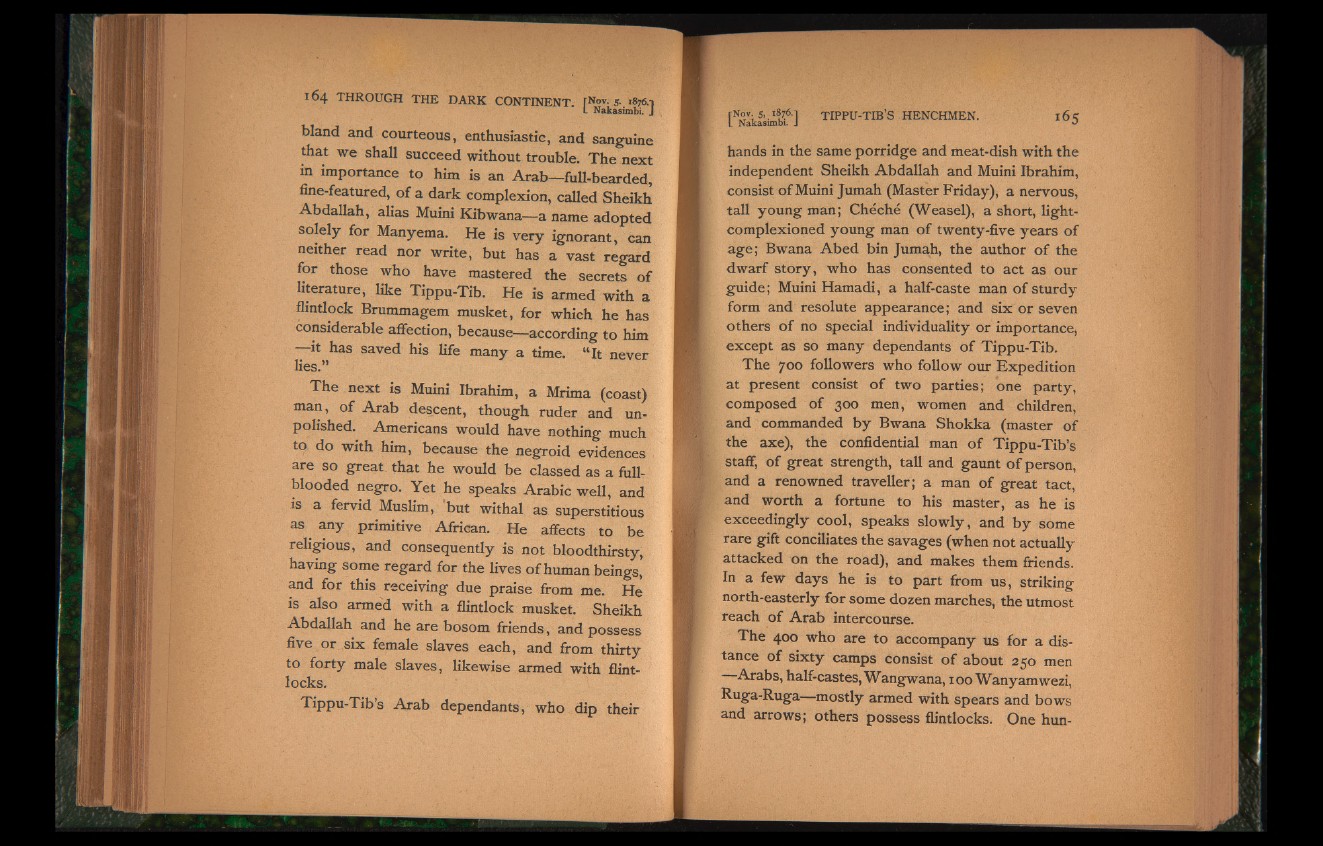
164 THROUGH THE D ARK CONTINENT. fNov- 5- 1876.1
L Nakasimbi. J
bland and courteous, enthusiastic, and sanguine
that we shall succeed without trouble. The next
in importance to him is an Arab— full-bearded,
fine-featured, of a dark complexion, called Sheikh
Abdallah, alias Muini Kibwana— a name adopted
solely for Manyema. He is very ignorant, can
neither read nor write, but has a vast regard
for those who have mastered the secrets of
literature, like Tippu-Tib. He is armed with a
flintlock Brummagem musket, for which he has
considerable affection, because— according to him
it has saved his life many a time. "It never
lies.”
The next is Muini Ibrahim, a Mrima (coast)
man, of Arab descent, though ruder and unpolished.
Americans would have nothing much
to do with him, because the negroid evidences
are so great that he would be classed as a full-
blooded negro. Yet he speaks Arabic well, and
is a fervid Muslim, but withal as superstitious
as any primitive African. He affects to be
religious, and consequently is not bloodthirsty,
having some regard for the lives of human beings,
and for this receiving due praise from me. He
is also armed with a flintlock musket. Sheikh
Abdallah and he are bosom friends, and possess
five or six female slaves each, and from thirty
to forty male slaves, likewise armed with f l i n t ,
locks.
Tippu-Tib’s Arab dependants, who dip their
[NNlklsimb7i6] TIPPU-TIB’S HENCHMEN. 165
hands in the same porridge and meat-dish with the
independent Sheikh Abdallah and Muini Ibrahim,
consist of Muini Jumah (Master Friday), a nervous,
tall young man; Cheche (Weasel), a short, light-
complexioned young man of twenty-five years of
age; Bwana Abed bin Jumah, the author of the
dwarf story, who has consented to act as our
guide; Muini Hamadi, a half-caste man of sturdy
form and resolute appearance; and six or seven
others of no special individuality or importance,
except as so many dependants of Tippu-Tib.
The 700 followers who follow our Expedition
at present consist of two parties; one party,
composed of 300 men, women and children,
and commanded by Bwana Shokka (master of
the axe), the confidential man of Tippu-Tib’s
staff, of great strength, tall and gaunt of person,
and a renowned traveller; a man of great tact,
and worth a fortune to his master, as he is
exceedingly cool, speaks slowly, and by some
rare gift conciliates the savages (when not actually
attacked on the road), and makes them friends.
In a few days he is to part from us, striking-
north-easterly for some dozen marches, the utmost
reach of Arab intercourse.
The 400 who are to accompany us for a distance
of sixty camps consist of about 250 men
Arabs, half-castes, Wangwana, 100 Wanyamwezi,
Ruga-Ruga—mostly armed with spears and bows
and arrows; others possess flintlocks. One hun